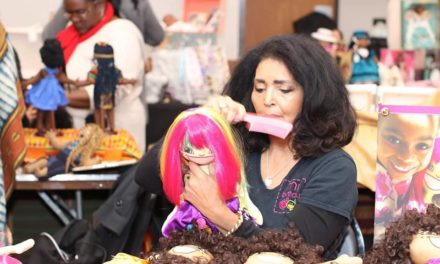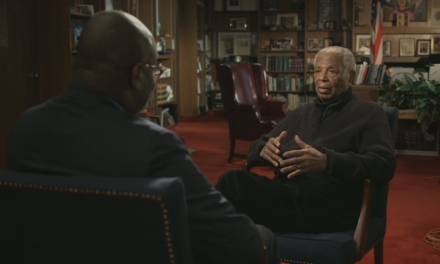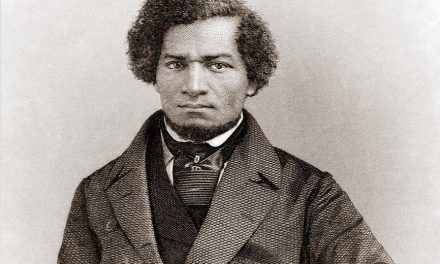The Detroit-area’s largest used book and media sale, Bookstock returns this year to Laurel Park Place in Livonia after a two-year COVID-related hiatus. The event benefits literacy and education projects in Southeast Michigan and will feature more than 400,000 used books, DVDs, CDs, books on tape, vinyl records and more for sale. Leftover Bookstock items are donated to area nonprofits and charities in the community.
RELATED: Detroit Book City Hosts African American Family Book Expo for Black History Month
Ahead of the May 15-22 event, host Stephen Henderson sits down with Bookstock Honorary Chairperson Neal Rubin, columnist for the Detroit Free Press; Bookstock Honorary Chancellor Alycia Meriweather, district deputy superintendent for Detroit Public Schools; and fourth-grade Detroit teacher Kenya Austin-Posey to discuss Bookstock’s partnership with the community, the state of literacy in metro Detroit, the importance of literacy accessibility and the impact the pandemic has had on education.
Full Transcript:
Stephen Henderson: So I’m really excited. That Bookstock is back after a two-year hiatus because of COVID-19. Neal, tell me how excited you are. I know how deeply you love this event; how much time you put into it. This has got to feel really good.
Neal Rubin, Columnist, Detroit Free Press Bookstock, Honorary Chairperson: I am a complete Bookstock geek and we’ve only got two years of pent-up geekdom. We have boatloads of books and media to sell for this great cause. We have more than 400,000 used books and various forms of other media at Laurel Park Place May 15 through 22nd. I’ll probably repeat myself with this but we can’t possibly put all that out at once. So hey, come early, come often, come every night.
Stephen Henderson: And talk about the return to live, this idea that we haven’t been able to do this in person. The idea of everybody getting together for a cause like this and for the attraction to literature, to words and ideas and sound and video. That’s also pretty exciting for me, Neal.
Neal Rubin: It is. And just one note. We will once again snake the entire length of Laurel Park Place Mall. We’ll also have a tent outside by the Dunham’s entrance for people who prefer to do their shopping outside. But, I feel really strongly and I know you do too that Bookstock belongs in the basement.
They belong in people’s laps. And that’s what Bookstock does, along with all the great things we support, literacy, education so much with schools. We get books read. Which is what they’re intended to do. And it’s been frustrating the last couple of years to not be able to do that.
Stephen Henderson: Yeah. Alycia, the money for that comes out of Bookstock, of course, goes for literacy and education programs all over metro Detroit. Give us an idea of some of the ways that that money gets spent.
Alycia Meriweather, Deputy Superintendent, DPSCD Bookstock Honorary Chancellor: Well, there’s lots of ways. So there’s one of the beautiful things about Bookstock is that the funding that comes into the district and I assume other initiatives is really left up to the recipient of how to use that, how to make the best use of those funds, which I think is just another piece of the beauty of the relationship with Bookstock, is that the focus is literacy. The focus is getting books into the hands of students and whoever else.
But they also are very respectful about, look, we’re not going to tell you what to do with this funding. The purpose should be around literacy, and it should be around making sure that students have access to books. What does that look like? It’s really up to you. It’s up to the school, it’s up to the district.
And so it can go along many different ranges. So it could be a classroom library that’s purchased. It could be a set of take-home books, take home library that’s purchased. It can be paying for tutoring. It can be anything that makes sense at that moment, which for the district is completely appreciated. It’s just another added bonus of us being partners with Bookstock.
Stephen Henderson: Yeah, talk about the struggle and I guess some of the triumphs really that we’re experiencing around the literacy question in Detroit and Detroit schools is it’s obviously an issue that we’ve had to work on for a really long time in the city. But I know that there has been better news in recent years. And I’d like to think that the programs like Bookstock have made a difference.
Alycia Meriweather: I think any program that focuses on literacy. And there are many. But definitely putting the issue of literacy to the forefront is one of the first elements that I would lift up about Bookstock is it’s bringing books back to the forefront and saying books matter, reading matters, literacy matters. And in the city, when you’re looking at the literacy rates among adults, even, you know, there is to your point, Stephen, there is a long history of some pretty challenging numbers here and what are we doing about that?
Alycia Meriweather: And so one, on the adult level, if I could say this for just a moment, the district operates an adult education program. And with over 90,000 adults in the city without their GED or high school diploma, we have a lot of work to do there and we are really pushing into the adult space as well around literacy and proficiency. We’re seeing the most graduates we’ve seen in a long time this year. Part of that is the online access which came out of the pandemic.
Alycia Meriweather: And it’s something I think that will stay around. For young people in our schools. You know, the pandemic, those two years when Neal talks about Bookstock has been on hiatus for two years from in-person school, was on hiatus in terms of in-person. And we’re really trying to push in on closing those gaps. And I think we are seeing progress through small group instruction, pretty serious interventions with some very strategic partners.
Alycia Meriweather: And I hope that after like our summer school programming this year and then coming into next year with pretty intentional Tier two and Tier three intervention, that small group and individual intervention, we’re going to continue to see those gaps close. To act as though the pandemic didn’t impact everything, including literacy progress that we were making, would be insincere and would be inaccurate.
Alycia Meriweather: I think where we are now is let’s attack this in person matters, reading matters, interventions matter, and working with partners, with champions like Neal, with teachers, with principals, with parents. All of that is part of the plan to address this literacy issue. It’s not just one thing. Bookstock is one of those components, community involvement and support.
Stephen Henderson: I think it’s a good time also to talk about the role that consistency plays in this issue and to pick up on specifically something you just said, that before the pandemic, it felt like we were establishing more of that consistency in the public schools in Detroit. And the disruption of the pandemic, of course, broke that consistency.
The trick now is to get back to that space and be able to do things all the time that need to be done in order to raise literacy levels and awareness and all of those things in the schools. And so you guys have a real challenge and it’s so disappointing that we finally got to that point and then the pandemic really, really knocked us off our game a little.
Alycia Meriweather: A little bit. Stephen, if I could just say this, that which is a silver lining. Bookstock has been a consistent partner for years and years and years. So when you talk about consistency, there are partners who have stayed connected. And I would also say, as far as the district is concerned, our elected empowered board and stable district leadership made everything that we’ve gone through and where we are now much more manageable.
And so consistency does matter on multiple levels. And I’m very, very confident that what we’ve lost, we’re going to make back up because the leadership has not changed and the vision and mission has not changed. So I’m still encouraged. So I just want to put that out there. We’ve got a lot of great things happening and we’re going to make up that lost time.
Stephen Henderson: Kenya, I want to have you talk a little about the school level and the role that Bookstock plays in programing and other things that happen at Davison Elementary as a result.
Kenya Austin-Posey, Fourth Grade Teacher, Davison Elementary/Middle School: Okay. Bookstock has been a wonderful partnership with Davison for years. I’ve been at Davison for about four years now. I participate in the program every year. My fourth graders are ecstatic. They’re constantly on the results now. They’re asking me through teams, we still communicate with that technology. Have you got the results in yet? So I look forward to tomorrow. Going to let them know in everyone’s face.
Kenya Austin-Posey: But just being able to have that experience and letting students be able to have the opportunity to create a masterpiece, writing and be able to put their words on print and having like she said a tangible book in your hand. We’ve been so confined in our homes with technology, looking at books online, but being able to go out, use whatever winnings they get and have that incentive to go out and purchase a book. So I’m excited and the opportunities been great. My kids enjoy writing. I’ve made it into a great competition, so we even read every writing. It was a pretty big deal in the classroom.
Stephen Henderson: Yeah. Give us a sense of how I guess how the pandemic disrupted things in your school and with kids in your classroom and what the momentum feels like now that we’re coming out of at least the worst part of COVID 19 and things are kind of returning to normal. Give us a sense of what that energy is like.
Alycia Meriweather: I can admit the transition was pretty steep coming from virtual back to face to face. Developing those routines and procedures all over again, trying to instill, you know, motivate them to want to learn and be passionate about what they’re doing. But like I said, it’s been a challenge. We call it the road to recovery.
We’ve been using like small groups instructions here for editing and different groups at the district level to try to help the students achieve that gap that we’re focusing on right now with literacy. But Bookstock has just provided them a great incentive to want to read and want to write about their personal connection that they have with every book character that they have in class. So it’s pretty rewarding.
Stephen Henderson: Yeah, yeah. I can remember fourth grade for me seemed to be that point in time where stories took on so much more meaning and the connection with characters and narrative arc all kind of opened up in front of me. And I just remember that, that sense of wonder that I had at that age. And I’m jealous that you get to experience that all the time.
Alycia Meriweather: It is great because they get to really focus on the characters and they’re like, I’m a lot like this character somewhat. Give me some other characteristics as you can describe about yourself in that character. So like I said, it’s been really rewarding to see them get invested in it. And like I say, it’s one person started doing it and everybody’s that’s how they make this into a whole competition. So they get to share on the microphone as well.
Stephen Henderson: Wow. Wow. And Neal, tell me how you assemble 300,000 to 400,000 pieces of media, books and CDs and DVDs, all of this. How does this all come together?
Neal Rubin: It’s almost like the elves do it. People drop them off. We have collection sites and collection days throughout the year and that information is at bookstockmi.org along with all the special stuff we’re doing this week and over time we just accumulated. And of course, with no Bookstock the last few years, we’ve got all those holdover books, plus the stuff we collected this year, and I’m overwhelmed. Last I checked, we were at 300,000 and the number is now 400,000 items. Kind of staggering. I’m glad I don’t have to lift all of it.
Neal Rubin: In terms of teachers by the way…
Alycia Meriweather: Right. I’ll be there.
Neal Rubin: We adore teachers and we appreciate that, with having to shift to virtual and in some cases virtual and in-person at the same time, you’ve worked twice as hard at what’s an amazing job in the first place. So we have teacher appreciation days, Tuesday and Wednesday of Bookstock from 2 to 7 p.m. everything is half off for any teacher with an ID.
Neal Rubin: And I talked to a lot of teachers, particularly, you know, early Elementary, who stocked their rooms for the entire upcoming year by just coming in raiding Bookstock. And the last Sunday, it’s 11 on Sundays. Eleven to seven all the other days, basic mall hours. But the last Sunday, everything’s half off for everybody because once again, we don’t want to lift this stuff. We’ve got to get it out of the mall somehow. We’d much rather you do it.
Stephen Henderson: Okay, Neal, Alycia and Kenya, congratulations on another Bookstock coming up May 15th through the 22nd at Laurel Park Place in Livonia. So great to have you here with us as well on American Black Journal.
Alycia Meriweather: Thank you.
Stay Connected:
Subscribe to Detroit Public Television’s YouTube Channel & Don’t miss American Black Journal on Tuesday at 7:30 p.m and Sunday at 9:30 a.m. on Detroit Public TV, WTVS-Channel 56.
Catch the daily conversations on our website, Facebook, Twitter and Instagram @amblackjournal.
View Past Episodes >
Watch American Black Journal on Tuesday at 7:30 p.m. and Sunday at 9:30 a.m. on Detroit Public TV, WTVS-Channel 56.




